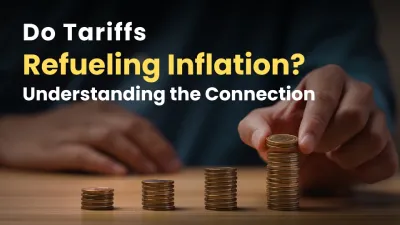简体中文
繁體中文
English
Pусский
日本語
ภาษาไทย
Tiếng Việt
Bahasa Indonesia
Español
हिन्दी
Filippiiniläinen
Français
Deutsch
Português
Türkçe
한국어
العربية
Prices in Venezuela rocketed 130,000% last year
Abstract:Venezuela's central bank released its first inflation data since 2015, showing the dismal state of the economy. GDP fell at least 10% for 11 quarters.
Prices rocketed more than 130,000% in Venezuela last year, according to the first set of central bank data released since 2015.
Inflation topped 50% for most of 2018 and exceeded 850% in 2017.
Venezuela's GDP has dropped by at least 10% for 11 straight quarters.
Visit Markets Insiders' homepage for more stories.
Prices rocketed more than 130,000% in Venezuela last year, according to its central bank's first release of inflation data in more than three years.
The troubled South American nation reported monthly price rises north of 50% for most of 2018, and average inflation in excess of 850% in 2017, according to the data. For comparison, US inflation was 2% in the year to April, according to the Bureau of Labor Statistics.
While Venezuela's prices have surged, its economy has shrunk. Gross domestic product, a measure of economic growth, fell by about 23% year-on-year in the third quarter of 2018, the most recent period included in the central bank data. GDP has declined in every quarter since the start of 2014, and dropped by at least 10% year-on-year every quarter since the end of 2015, the data showed.
Given the continued GDP declines, the Venezuelan economy has more than halved in size over the past five years, marking one of the largest contractions in South America's history. More than 3 million people have fled the country since 2015, as inflation has made necessities unaffordable and contributed to shortages of food and medicine. The nation remains locked in a power struggle between President Nicolás Maduro and opposition leader Juan Guaidó, who accused Maduro of stealing elections and declared himself interim president earlier this year.
Relentless inflation and widespread shortages have translated into daily struggles for Venezuelans. A dozen eggs can cost upwards of $150 on the black market, according to CNN. A kilogram of maize flower or pasta goes for more than $300, and just over two pounds of powdered milk will run you $700 — nearly half the national minimum wage. Even criminals are feeling the pain: they're hesitant to open fire given the hefty cost of bullets, and reportedly struggle to find items worth stealing, according to the Associated Press.
Disclaimer:
The views in this article only represent the author's personal views, and do not constitute investment advice on this platform. This platform does not guarantee the accuracy, completeness and timeliness of the information in the article, and will not be liable for any loss caused by the use of or reliance on the information in the article.
Read more

Why Fed Keeps Interest Rates Unchanged, How Does It Affect To Forex Market?
Fed keeps interest rates at 4.25%–4.50%, impacting forex market. Dollar may rise as tariffs loom. Explore why rates unchanged and forex effects.

Do Tariffs Refueling Inflation? Understanding the Connection
Investigate how tariffs impact inflation. Learn how trade barriers influence prices and the broader economic landscape.

Will Trump's Trade Policies Fuel Inflation? BlackRock Warns of Economic Risks
Bitcoin and crypto prices plummet as recession fears and inflation warnings shake markets. Experts warn of prolonged economic challenges ahead.

How Will Central Bank Digital Currencies Could Shape Everything?
Central bank digital currencies (CBDCs) could reshape financial stability, addressing inflation, banking risks, and monetary policy challenges.
WikiFX Broker
Latest News
TradingView Brings Live Market Charts to Telegram Users with New Mini App
Trump tariffs: How will India navigate a world on the brink of a trade war?
Interactive Brokers Launches Forecast Contracts in Canada for Market Predictions
Authorities Alert: MAS Impersonation Scam Hits Singapore
Stocks fall again as Trump tariff jitters continue
INFINOX Partners with Acelerador Racing for Porsche Cup Brazil 2025
Regulatory Failures Lead to $150,000 Fine for Thurston Springer
April Forex Trends: EUR/USD, GBP/USD, USD/JPY, AUD/USD, USD/CAD Insights
March Oil Production Declines: How Is the Market Reacting?
Georgia Man Charged in Danbury Kidnapping and Crypto Extortion Plot
Currency Calculator







